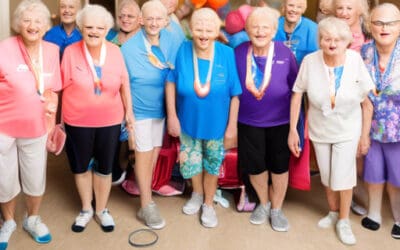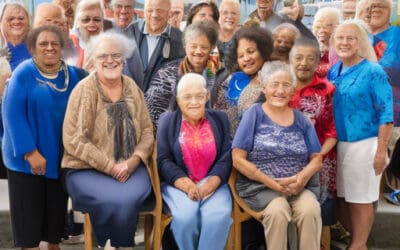Are you concerned about the well-being of a loved one who is aging? It can be challenging to determine when it’s the right time for them to transition to assisted living. Many individuals value their independence and may resist the idea of moving to a care facility. However, certain signs may indicate that the time has come to consider assisted living as a viable option. In this article, we will explore eight signs that suggest it may be time for assisted living, allowing your loved one to receive the support and care they need while maintaining their quality of life.
As people age, their physical and mental health needs change. While some seniors can continue living independently, others may require additional assistance to ensure their safety and well-being. Assisted living facilities offer a supportive environment where older adults can receive help with daily activities, access to medical care, and socialization opportunities. Let’s explore the signs that indicate it may be time to consider assisted living for your loved one.
Sign 1: Declining Physical Health
One of the key indicators that it may be time for assisted living is a noticeable decline in physical health. If your loved one is experiencing difficulties in performing routine tasks, such as bathing, dressing, or preparing meals, it could be an indication that they require assistance. Assisted living facilities have trained staff who can provide the necessary support and care, ensuring that your loved one’s physical health needs are met.
Sign 2: Difficulty with Activities of Daily Living (ADLs)
Activities of Daily Living (ADLs) include essential tasks such as eating, bathing, dressing, and using the restroom. If your loved one is struggling with these activities, it may be a sign that they would benefit from the assistance provided in an assisted living facility. Trained caregivers can help with ADLs, ensuring that your loved one’s basic needs are properly attended to.
Sign 3: Isolation and Loneliness
Social isolation and loneliness can have a significant impact on a person’s mental and emotional well-being. If your loved one is spending most of their time alone, lacking social interactions and companionship, it can lead to feelings of depression and isolation. Assisted living facilities offer a community setting where residents can engage in social activities, build friendships, and participate in group events, reducing feelings of loneliness and improving overall mental health.
Sign 4: Frequent Accidents or Falls
Frequent accidents or falls can be a clear indication that your loved one is no longer safe living independently. Falls can result in serious injuries, and the risk of falling increases with age. Assisted living facilities are designed with safety features in place to minimize the risk of accidents. Additionally, trained staff can provide immediate assistance if a fall or accident occurs, ensuring that your loved one receives prompt medical attention.
Sign 5: Poor Medication Management
Managing medications can become increasingly challenging for seniors, especially if they have multiple prescriptions. Missing doses, taking incorrect dosages, or experiencing adverse drug interactions can have serious consequences for their health. Assisted living facilities have medication management systems in place to ensure that residents receive their medications correctly and on time, reducing the risk of medication errors and promoting better overall health outcomes.
Sign 6: Neglected Home Maintenance
When you visit your loved one’s home, take note of its condition. If you notice that their home is consistently messy, cluttered, or in a state of disrepair, it could be a sign that they are struggling to maintain their living environment. Difficulty with housekeeping tasks, such as cleaning, cooking, or general maintenance, may indicate that they need assistance. Assisted living facilities provide a clean and well-maintained living environment, removing the burden of home maintenance from your loved one’s shoulders.
Sign 7: Cognitive Decline and Memory Loss
Memory loss and cognitive decline can make it challenging for individuals to live independently. If your loved one frequently forgets important appointments, struggles to manage finances, or experiences confusion with everyday tasks, it may be an indication of cognitive decline. Assisted living facilities have memory care programs and specialized support for residents with dementia or Alzheimer’s disease. Trained staff can provide the necessary assistance, supervision, and memory-enhancing activities to ensure the safety and well-being of individuals with cognitive impairments.
Sign 8: Caregiver Burnout and Stress
If you have been the primary caregiver for your loved one, it’s important to assess your own well-being as well. Caregiving can be physically and emotionally demanding, leading to burnout and increased stress levels. If you find yourself feeling overwhelmed, exhausted, or unable to meet all the needs of your loved one, it may be time to consider assisted living. Transitioning your loved one to an assisted living facility can provide them with professional care and support, while also allowing you to prioritize your own self-care and well-being.
Recognizing the signs that it’s time for assisted living is crucial for ensuring the safety, well-being, and quality of life of your aging loved ones. Declining physical health, difficulty with activities of daily living, social isolation, frequent accidents or falls, poor medication management, neglected home maintenance, cognitive decline, and caregiver burnout are all indicators that assisted living may be the best option. Assisted living facilities offer a supportive environment where seniors can receive the care and assistance they need, while still maintaining their independence to the fullest extent possible.



